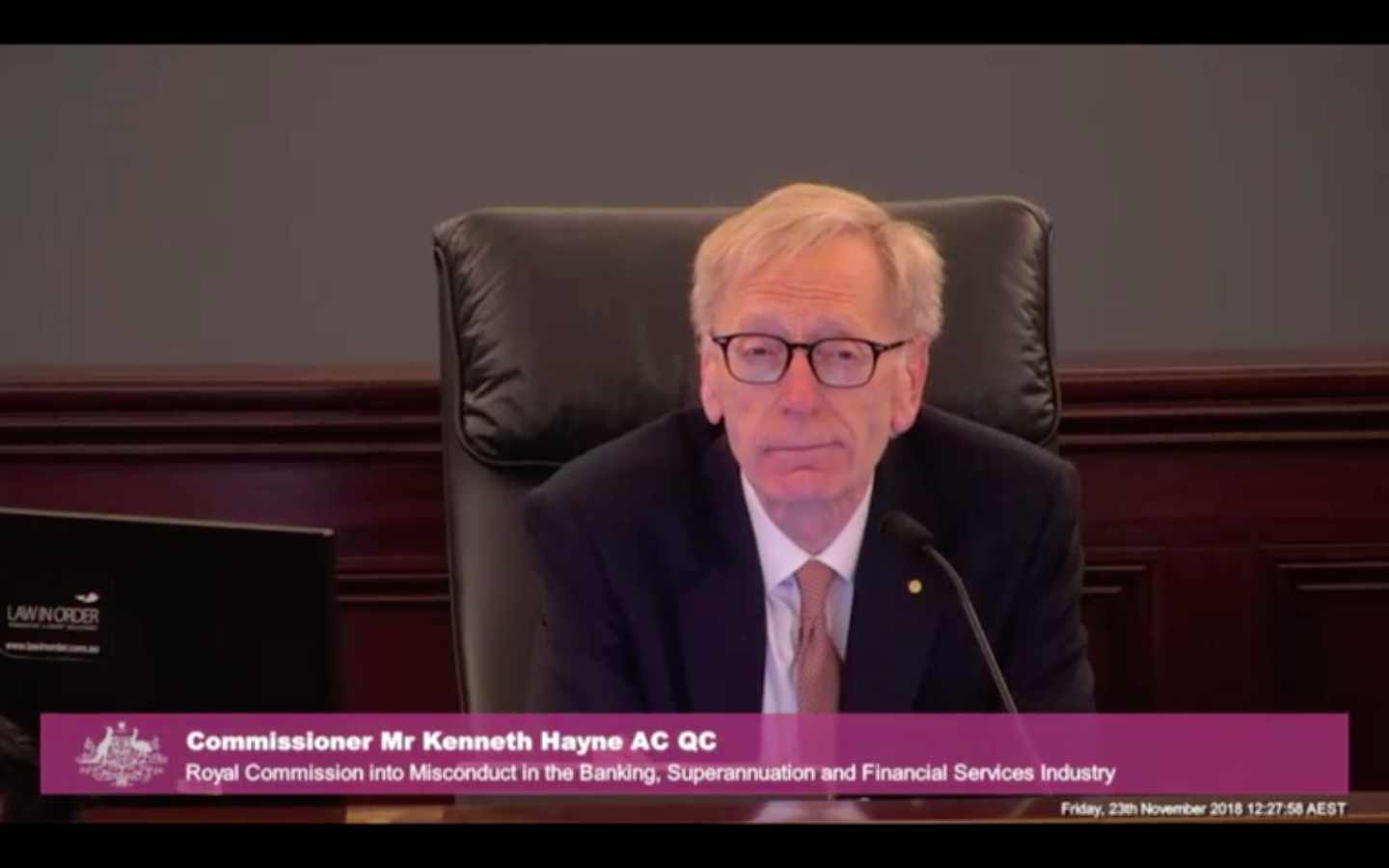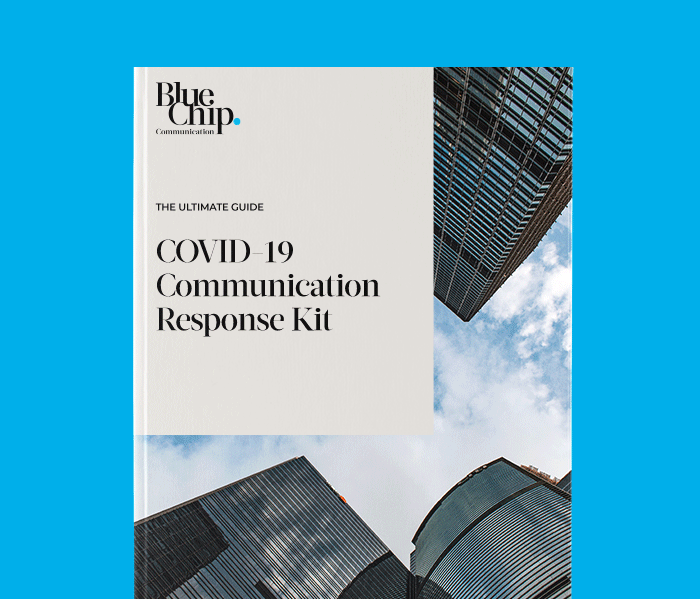Crisis Management Royal Commission Watch - Part 8
There's no fast lane to fixing the broken trust the Commission has left trailing in its wake - but if it’s to happen, it’s going to take further investigation, collaborative action from all corners, and communication

This Commission in numbers:
- 134 witnesses.
- 400 witness statements.
- 6,500 exhibits.
As we make sense of the task ahead for the industry - restoring trust - we’ll share our observations as communicators. There’s no silver bullet fix, but there are ways to stop, or slow, the PR and reputational crisis in financial services.
The Royal Banking Commission is almost over. The hearings are done and all that remains is to wait for Hayne’s final report. It would be impossible to sum up the breadth of the Commission here, with many of the most awful revelations residing in the detail and specificity of people’s experiences. What was demonstrated by the end, despite these individual stories, was that fault lines run through the industry. Many of the issues are endemic and have been for some time.
We’ve seen the most vulnerable consumers affected – and often affected disproportionately. Lives have been destroyed and families brought down.
We’ve seen bad human behaviour, incentivised and permitted by poor structures, driven by the worst aspects of human nature and preying on our most vulnerable fears and motivations.
And, aside from the victims and the villains, we’ve seen weak leadership, paradoxical models, and highly-complex, seemingly insolvable, issues.
Various solutions have been put forwards: a scarier cop with a bigger stick, better consumer financial literacy, breaking up of the big players to allow for more competition. All of these will have a role to play, and the top-down mandates – and Hayne’s recommendations in February – will have to be responsible for a paradigm shift.
We’ve spent this series of blogs watching the blow-by-blow of the Commission. With so much revelation, speculation, and confrontation, it was easy to focus on the headlines and harder to determine the wider, longer impact.
This week has shown that there is still news to come, dirty laundry to be aired, and reparations to be made. With a new fees-for-no-service scandal facing AMP, much action still to be taken by regulators, and many institutions taking the opportunity to release any negative news or admission of fault – including NAB’s praised but damning self-assessment - we are still seeing the reputational damage unfolding.
Until that unfolding is complete, we see no beginning on the slow road towards improved trust.
Whether seen through a PR crisis management-, market efficiency- or psychological- lens, we believe there are steps yet required before any reputation rebuild can gain traction.
PR Crisis Management
A "set play" in PR crisis management (also called reputation and issues management) is to "investigate, remediate, communicate". Used when a person or brand has (or is seen to have) done the wrong thing, it requires a full unfolding of the issue - or at least the perception of the same - before there's any ability to move forward. While new and damaging information still drips or gushes out, as it did in some cases as late as this week, the financial services industry is collectively stymied in efforts to move forward reputationally, regardless of calls for transparency.
Market efficiency & basic economics
A first principle in capital markets education is that a properly functioning (efficient) market (such as a securities exchange) requires timely and accurate information. This principle is enshrined in the ASX Listing Rules and the governance of markets globally. Why? Because full information helps create a level playing field. It builds trust that allows full participation by parties who don't know each other.
While trading opportunities might come from information asymmetry, trust does not.
There's a perception here, in media commentary and the community, that too much information was hidden. How then can we have a market that functions properly?
This is your brain on trust
Trust. It’s a word that’s been used about this Commission 10,000 times. Talking about how it has been broken. Talking about how it’s being lost. Talking about how to get it back. It’s what we mean, to an extent, when we talk about ‘community licence to operate’, and it’s right there in the word ‘fiduciary’.
We don’t fully understand the neuroscience of trust. Studies over the last decade have found that oxytocin makes us more trustworthy, and trusting lights up our caudate nucleus - one of the brain’s pleasure centres.
We also know that willingness to trust others is built into our DNA. It’s a characteristic that helps us survive: it’s so emotive precisely because of its social value and importance.
So, we want to trust, we like to trust, and we need to trust - but what happens when trust is broken?
Trust allays anxiety: researchers have found that trusting (within a game) reduced activity in the amygdala (which processes fear, danger and possibly risk of social betrayal), and in part of the striatum, (the circuitry that guides and adjusts future behaviour based on reward feedback).
If we consider the various stakeholder relationships - Australia’s financial service industry and its customers; regulators and citizens; staff and their organisations; boards and directors - the consequences of both a rise in fear and an affect on future behaviour are easily extrapolated.
I have drunk, and seen the spider
What can you do, when someone has lost their trust in you? The above relationships are no different from any other - it takes time, action, investment, and introspection to begin to make it better. The materials of this building will be familiar to most of us, whatever kind of betrayal or bad behaviour we’ve seen repaired:
- Acknowledgment: first up is admit, apologise, explain. We’ve already seen much of this over the year, but there may be more to come as further revelations continue to occur.
- Transparency: another word we’ve seen more than its fair share this year, but whether it means sharing your Facebook password, your childhood traumas or your bank statements, a part of helping people to trust again is showing you have nothing to hide. Admitting mistakes, for example, and being able to demonstrate vulnerability and fallibility - for despite best efforts, they might happen again. Many predict that one impact of the Commission will be simplification – of financial instruments, standards and laws, but also of financial institutions’ customer and product communications. With a repeated accusation against the industry of murkily keeping things in the shadows, we expect that savvy players will be clarifying, expanding and amplifying their communications as they go forwards. But they will have to do so in a manner more mindful of how their customers receive and use that information. A key challenge to address is that more information often leaves financial services customers less informed, not more.
“What is clear is that we cannot simply hope the sector fixes itself behind closed doors.” - Chanticleer
- Removal of temptation: demonstrate you aren’t flirting with disaster again by not putting yourself in the same situation. A major impact of the Commission will be an overhaul of pay structures, rewards, and incentives, as well as the elimination of many openly conflicting business models (already well on its way), and attempts to increase competition.
- Consistency of behaviour: It’s no good showing better behaviour for a day or a week – there will be no shortcut to repairing confidence in any of the mentioned stakeholders; only demonstrating reliably over time that things are in fact different. It’s a short drop down and a long climb up, but we know that trust built slowly has a solid foundation and is more robust. That's real change, not PR alone.
“As…Matt Comyn said repeatedly…it is only through action that the community will actually believe reform has occurred.” - Chanticleer
The rights and responsibility of those wronged
In addition to these, there is work to be done by the party whose trust is lost: firstly, a consideration of how and why this occurred, and their role in it. In this regard, the Commission’s impact has been to highlight the low levels of financial literacy and agency that Australia currently exhibits.
But secondly, it's crucial to correct the balance of power - to hold the entity trying to buy back trust responsible for the new standards. Equality is the only solid foundation for trust, where no one side is held to ransom. For an industry, lots of things can keep the consumer powerless - asymmetry of information or poor transparency; lack of competition or options in the market; difficulty of switching providers or lack of understanding. After a crisis of trust, the other person needs to know that if it is not repaired, you will walk. Only on this footing can you move forwards.
In many ways, the gladiatorial spectacle of the Commission has been a public restoration of power to the consumer, and a catharsis for their anger. But power must remain with the consumer for trust to grow. So where is the powerful consumer advocate strong enough to hold our financial institutions accountable? For the moment that is Commissioner Hayne. Post-February we'll need a better answer.
It's not just individuals who must create trust again, but organisations, systems, and the industry as a whole.
“Faith in the industry, in our collective corporate purpose and social license, has been well and truly tarnished…changing the community’s perception is a much more difficult task than just remediating your own issues, as an ebbing tide carries all before – Roger Davis, Bank of Queensland chairman
So, how do we fix the conflicting and mutually destructive issues of weak leadership and toxic culture, the risk of overregulation, and low public trust, all at once?
“The community has little choice but to put its faith in the financial sector to heal itself.” - Chanticleer
In this postlapsarian environment, there’s a long road ahead, but fortunately the answer is in the question – only by working together to succeed, as oxytocin intended, will we begin to walk down it. And this means including every one of those stakeholders, and a few others besides, in the solution.
Download BlueChip’s COVID-19 Communication Response Kit, a practical guide to help you act, communicate and lead with more certainty. It provides communication and crisis management tools specifically developed for financial services CEOs, leadership teams and coronavirus response teams.
If you’d like to discuss adjusting your communication strategy for the current times, please call us or fill out our contact form here.













